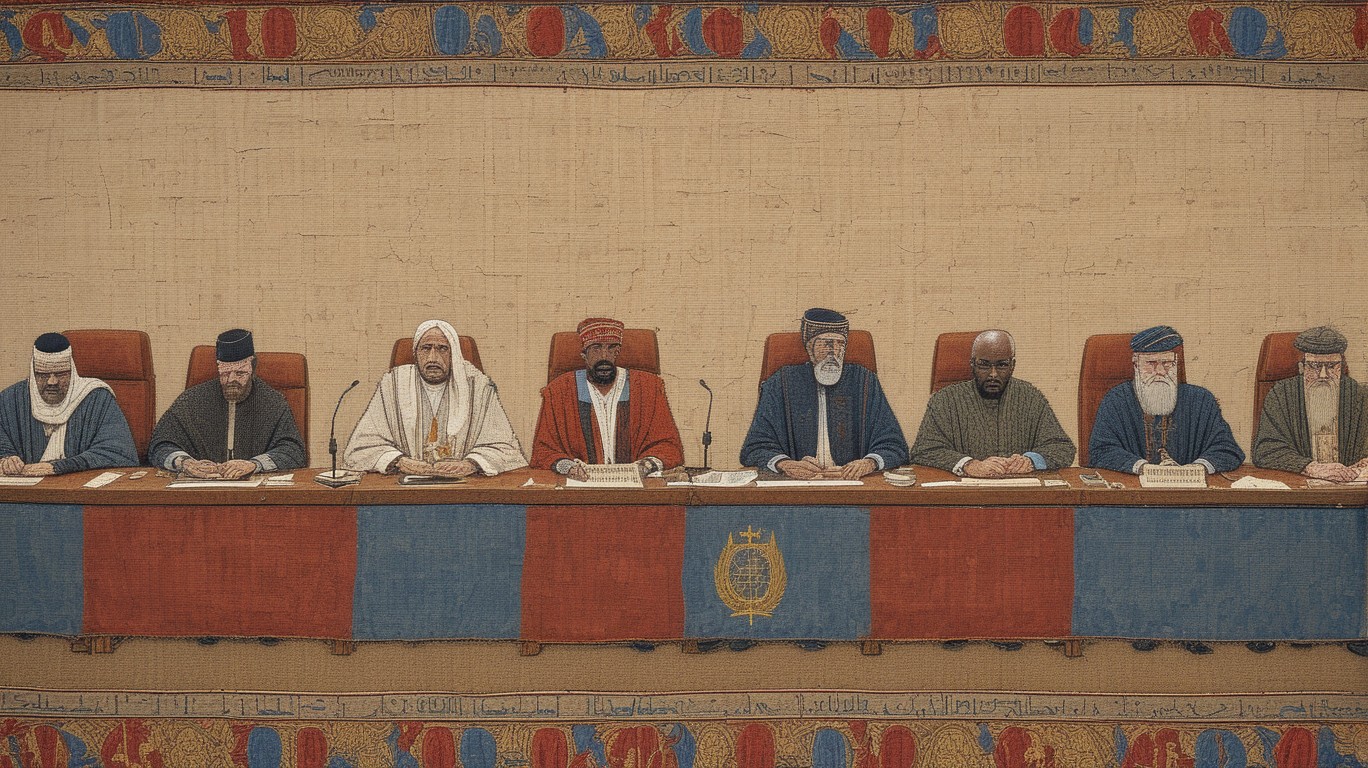
A tale of justice served in far-off lands, the International Criminal Court seizes upon its righteous duty, to find the International Criminal Court convicts Malian Islamist Al Hassan Ag Abdoul Aziz of the malevolent group Ansar Dine guilty on charges most heinous - war crimes and crimes against humanity. (Reuters)
Upon this day in our Lord's year of two thousand, twenty-four, a great tale of justice served in far-off lands hath been wrought by the International Criminal Court (ICC). This noble institution, whose duty it is to seek out the most malevolent miscreants and hold them to account for their crimes against humanity, hath found itself embroiled in a case of great import. The accused stood before this esteemed body, none other than Malian Islamist Al Hassan Ag Abdoul Aziz, a man who had cast his lot with the nefarious group known as Ansar Dine.
The ICC, ever vigilant in its pursuit of justice and truth, leveled most serious charges against Mr. Aziz. It was claimed that he bore great responsibility for war crimes and crimes against humanity - offenses so heinous that they defied all human decency. This great court, with its vast experience and understanding of international criminal law, would find no justification in allowing such malefactors to escape their due retribution.
The case before the ICC was a complicated one, involving many twists and turns as it sought out the truth hidden within the shadowy recesses of this complex conflict. The prosecution presented a strong argument that Mr. Aziz's actions were directly responsible for some of the most heinous acts committed during Mali's turmoil. His group, Ansar Dine, had wrought great havoc in the region, leaving a trail of devastation in their wake.
The defense team attempted to argue that their client was merely acting under orders and should not be held accountable for the actions of his organization. But the ICC saw through this flimsy argument - they knew that no one could escape responsibility for their part in such abhorrent acts.
As the trial progressed, it became apparent that Mr. Aziz's guilt was beyond reasonable doubt. The evidence against him was overwhelming, and the judges found themselves with little option but to deliver a verdict of guilty on all charges. This was not merely justice served; this was an affirmation of the rule of law in the face of adversity.
The ICC's ruling would reverberate far and wide, serving as a stark reminder that even in the most far-flung regions of our world, there are consequences for those who would choose to engage in such heinous acts. Al Hassan Ag Abdoul Aziz had been held accountable, and while this may not bring back all those who had lost their lives at the hands of Ansar Dine, it did offer a semblance of closure.
In the days following the verdict, there would be much discussion about the implications of this ruling. Some would argue that it represented the triumph of justice over darkness, while others might see it as merely one small step in an uphill battle against evil. Regardless of these varying viewpoints, one fact remained unassailable: the ICC had done its duty, and justice had been served.
And so, with this momentous decision behind them, the world would look to the International Criminal Court for guidance in future cases. The case of Al Hassan Ag Abdoul Aziz was a tale of justice served in far-off lands - a reminder that even when the darkness seems at its deepest, there are always those who will fight against it.
And so, this story of the ICC's righteous duty and its conviction of Mr. Aziz serves as an inspiration to us all. It is a testament to the power of justice and a call for all humanity to strive toward a better, more equitable world.